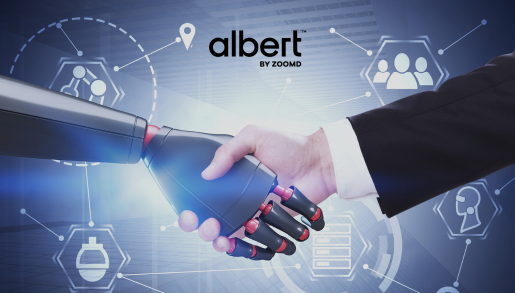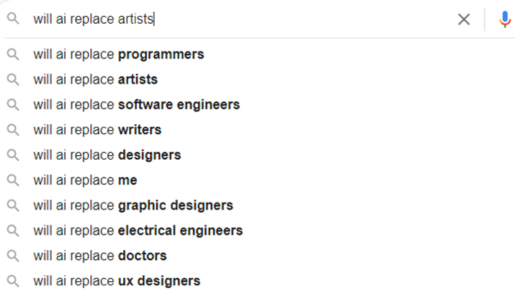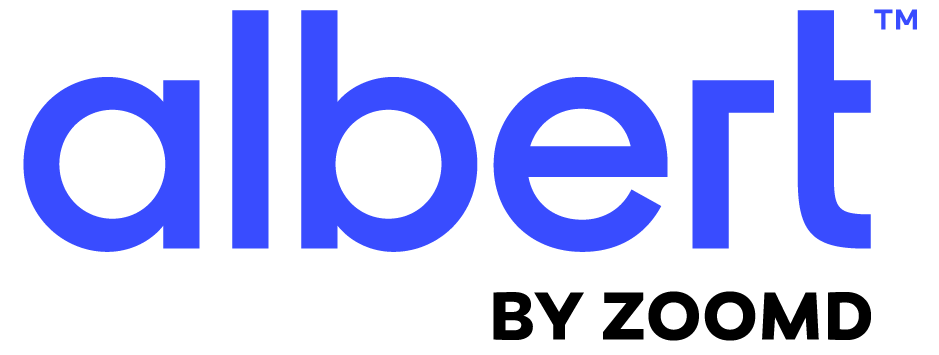Why AI Won’t Replace Marketers
05/22/2023

An interview with Sagi Weinberg, Sales Director at Albert

We completely understand why people fear the recent uprising technology. “As ChatGPT, MidJourney and other AI tools gain popularity, people hear about their phenomenal capabilities, yet aren’t familiar with these technologies. Therefore, they tend to think that, just like AI-based robots have replaced employees in large logistical facilities, they’ll replace content writers, programmers, designers and marketers,” says Sagi Weinberg, Albert’s Sales Director. Sagi, a long-time digital marketer with background in Sales, has vast experience in leading brands to great success. Sagi is highly experienced in planning and executing holistic marketing strategies aimed to drive measurable and sustainable bottom line results by identifying the business’ structure and needs, considering online and backend flows, creating a healthy marketing mix, devising a full funnel, channel-customized approach and implementing the right technologies.
With the latest talk about AI, many online publications are capitalizing on this trend, as amplifying fears means amplifying clicks. Before we know it, a range of professions seems to be on the edge of extinction. But for marketers, at least, it’s not the end of the story. As the following interview clarifies, AI won’t replace marketers.

Why AI Makes Marketers More Valuable
It’s true, Sagi says – “humans have inherited limitations. They take vacations, take weekends off, get sick and need to sleep. A machine doesn’t. It also doesn’t tire or get confused by processing amounts of data humans simply aren’t able to.” So again, marketers’ fears are understandable. But “that’s exactly where humans can capitalize and use machines to enhance their capabilities,” Sagi says.
Set the Foundation for More Efficient Campaigns
“AI helps you connect the dots between online and offline marketing efforts,” and between top and bottom of the funnel, Sagi says. “It closes the loop on the whole funnel,” he says.
Therefore, he explains, marketers can focus on a coherent, unified strategy that leads to better growth, more efficiently.
Simplify and Deepen Market Research
… and do so at a greater speed, Sagi says. AI can find low hanging fruit audiences that us humans never would have considered, like Americans buying gifts for an Australian holiday because they have loved ones in Oz. It can also let you know how to communicate better with your existing, but lower performing audiences.
Test A Wide Range of Creative Assets
There’s only so much campaign managers can do manually on a daily or weekly basis, but there’s no limit for what AI can do. In our platform, Albert, for example, you can automatically test a wide range of copy-visual combinations to quickly find the best fit for each audience segment. It actually does it for you, without the need to set anything up. With one time setting and uploading of assets, Albert creates new creative sets for either search or social platforms, knowing the limitation of each platform (creative wise).
Free Up Your Creativity
Even though AI takes the mixing and matching of creative assets, humans are still the ones creating the assets. In addition, according to Sagi, when AI does the heavy lifting on time consuming activities, such as massive testing and data analysis, marketers have more availability to delve into and express their creativity – not just in copy or design, but in strategy, too.
As Joe Hart, president and CEO at Dale Carnegie & Associates, reports, “creative companies are 1.5 times more likely to command a greater market share” and 67% of “the most creative companies… had above-average organic revenue growth.” Meaning, AI won’t replace marketers because companies need the marketers that combine forces with AI tools.
Make the Most of Your Budget
Sagi says that, with AI, “you can manage budgets in an unbiased, efficient manner. AI tools don’t have a platform preference. They can look at your whole activity from a bird’s eye view, and automatically shift budgets within the channel and across channels, toward the best performing activities.”
Optimize 24/7
“Campaign managers, and CMOs use tools like Albert to perform optimizations 24/7, even when they sleep,” Sagi says. “AI can analyze huge volumes of data at any given moment. Tools like Albert are capable of simultaneously analyzing stats of multiple ads, across multiple campaigns in various platforms, and across different channels,” he says.
“Plus, rather than looking at last month’s best performing ad, keyword or audience, which us humans usually do, AI can do it live, while also exploring new audiences,” he says. “It uses one set of logics that make all the decisions unified and persistent, without compromising KPIs,” he says.
And it keeps you in the loop. Albert, for example, “plugs into your ad account, manages the activity and later shows the number of calculations that were made, the amount of actions that were taken, the best performing ad variations and geographies. It breaks down the most relevant audiences and provides in-depth insight on every step of the marketing funnel in every channel respectively, as well as the whole paid media activity holistically, to help marketers make the right decisions in terms of brand-level creatives, localizing creatives for specific markets, and all the way down to adding keywords they could never have discovered otherwise to a landing page,” he says.
Before AI, “humans could only dream of such efficiency,” he says.
How AI Helps Marketers Prove Their Value to the C-Suite
As a late 2022 LinkedIn and YouGov survey revealed, “77% of CMOs globally feel under pressure to prove greater short-term ROI on their marketing campaigns.”
Sagi agrees. He thinks that, not only AI won’t replace marketers – but it will also help them keep their jobs and thrive professionally. “A clear view of results is essential for decision makers,” he says. Thankfully, “there are many ways to test the efficiencies of humans vs. machines. Efficiencies can be measured on many levels, including saved time, growth and other success metric improvement,” he says.
You can even measure the machine’s success directly vs. your best PPC marketers. But be aware – every time we did this here at Albert, the machine won. So be prepared to share that alongside the achievements your human team accomplished thanks to more time, better data processing and deeper audience targeting.
AI Won’t Replace Marketers Because AI Needs Marketers to Succeed
According to Sagi’s insights, today’s popular AI tools are great for amplifying marketing, but marketing management still requires the human element. Marketers are still needed – and will be needed for a while – to develop and manage the vision, goals and business model. They need to decide how they measure KPIs, and take all the above into account, in addition to the company’s limitations, when reviewing actionable analytics and deciding on next steps, he explains.
Therefore, it’s marketers who “decide on appropriate budgets, determine dates for time-sensitive or seasonality related promotions, etc. Those are strategy level decisions humans will always be necessary for,” he adds.
And there’s more. Marketers are the ones who understand their brands best – on top of industry regulation, sensitivities and brand safety. “They need to make sure they adhere to those requirements,” he clarifies.
“This is how Albert was designed,” he says, inviting you to get in touch for a free demo with his team. “It was designed to work hand-in-hand with humans. Humans are the ones who set the guardrails, define guidelines, and have a confined framework configured to the AI to work within,” he says. “It’s your brand, and you’re still its leader.”

